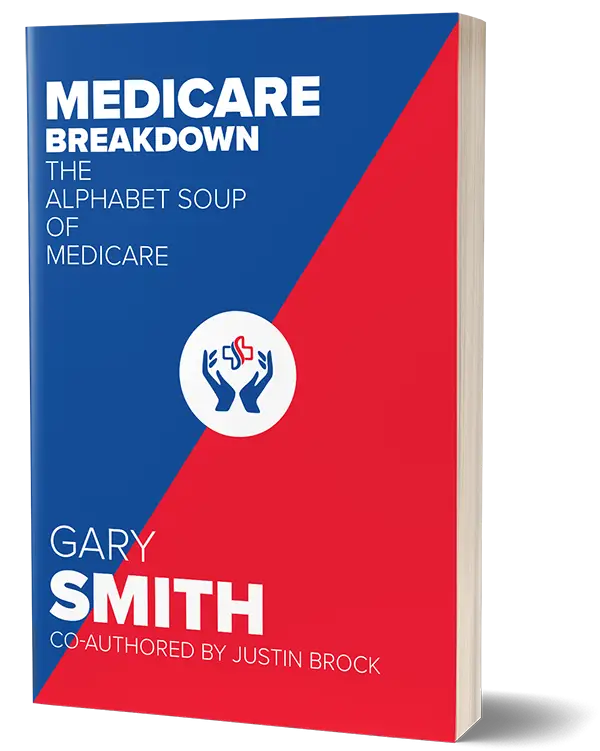When faced with having to make decisions that affect your healthcare AND your pocketbook the best approach is to start gathering information. When someone says “let me give you the nuts and bolts” of something you’re going to get information on how things work – the terminology, the processes, the options. We’d like to provide you with the nuts and bolts of Medicare Advantage plans so you can find one that best suits your personal needs. And of course we can “hammer” out the details when you need us for any additional information.
What is a Medicare Advantage plan?
If you currently are enrolled in Original Medicare, Part A and Part B, you can choose to enroll in Medicare Part C, more commonly known as Medicare Advantage. Medicare Advantage plans are offered by private health insurance companies. They provide coverage for Medicare Part A (Hospital) and Part B (Medical) benefits for beneficiaries. And many plans include the Medicare Part D drug coverage. We like to call it the “ALL IN ONE PLAN”.
A Medicare Advantage plan covers everything that Original Medicare covers. The coverage is based on Medicare. YOU DO NOT LOSE OR GIVE UP YOUR MEDICARE. This is a common misunderstanding. In fact, you are required to have Medicare parts A&B in order to enroll in a Medicare Advantage plan. You also have all the rights, protections and ability to appeal a decision under Medicare because you still have Medicare.
The main difference is WHO IS PAYING THE CLAIM. Meaning, who pays for your doctor visit. For example, if you go to the doctor and have a Medicare Advantage plan, the Medicare Advantage plan will pay your claim. Medicare does not pay your claim. And it is that simple, don’t over think it.
Paying your Part B Premium: As I stated earlier, you still have Medicare. Therefore, you must continue to pay for your part B premium when you enroll in a Medicare Advantage plan.
Medicare Advantage offers at least the same coverage as Original Medicare. Some Medicare Advantage plans have a $0 premium. However, regardless of how much you pay for a Medicare Advantage plan, you must continue pay your Medicare Part B premium.
There can also be differences in the coverage you receive. Some Medicare Advantage plans include routine vision, routine dental, and/or wellness programs. Many plans also include prescription drug coverage; those plans are called Medicare Advantage Prescription Drug plans (MAPD).
Do be aware that you would remain enrolled in Original Medicare even if you enroll into a Medicare Advantage plan, and you must continue paying your Medicare Part B premiums. If you enroll into a Medicare Advantage plan you will not be allowed to obtain a Medicare Supplement insurance plan (Medigap).
Types of Medicare Advantage (Part C) Plans
There are different types of Medicare Advantage plans. Make sure you understand the plan you pick before you enroll in that plan.
Note: most Medicare Advantage plans are NETWORK based. This means when your primary care doctor AB sends you to doctor CD, you must make sure that doctor CD takes your insurance.
HMO (Health Maintenance Organization plan): The HMO has a network of providers (doctors, hospitals, labs and etc.) that you MUST use. You cannot electively go outside the network. The co-pays under the HMO tend to be lowest of all Medicare Advantage plans. Typically, the HMO networks are regional. Meaning not nationwide.
PPO (Preferred Provider Organization plan): This plan is also Network based and if you want to get the most bang for your buck, you better stay IN NETWORK. It does give you the ability to see providers out of the network. However, you cost will be higher. So, stay in network. Typically, the network is nationwide.
How do you decide on the HMO vs PPO? In my opinion, pick the cheapest plan that covers your doctors and hospitals. Don’t get hung on the term HMO or PPO. They both work the same. Pick the cheapest plan that covers your doctors and hospital.
PFFS (Private Fee-for-Service plan): In my professional opinion. STAY AWAY!!!
Two other plans are the SNP (Special Needs Plans): Your must qualify for these plans. Meaning you must have Medicare and Medicaid. Or have a special medical condition that would qualify you for a special needs plan.
Eligibility for Medicare Advantage plans
As I stated earlier in this article, you must have Medicare Parts A & B in order to be eligible to enroll in a Medicare Advantage plan. Then you must live in the service area. The service area could be your State, but it also could include your county. Most plans are not offered Statewide. Make sure the plan is available in your county.
How is your address determined? All Medicare plans will use the address you have on file with social security. If you live on a county line, you will be asked to provide tax records to prove you live in X county versus Y county.
Group coverage and Medicare Advantage plans: If you are on Medicare and have group health coverage through your employer, ask about their plan’s rules before you enroll in a Medicare Advantage plan. You may lose your group coverage if you enroll in the Medicare Advantage plan.
Retirement coverage from your employer and Medicare Advantage plans: Be sure and talk to HR before you do anything. In most retirement health plans, once you drop coverage, you CANNOT get it back. Pay attention and ask questions.
Enrollment in Medicare Advantage plans
If you have Medicare part A and B, you may only enroll in a Medicare Advantage plan during specified election periods:
Initial Coverage Election Period: Your Initial Coverage Election Period is a seven-month period that starts 3 months before you turn 65, the month you turn 65 and ends 3 months after you turn 65. When this time frame expires, it is over…. gone…. not coming back. No do overs or mulligans. IT’S GONE!!! The Government does not care about your very valid excuse… fishing in Alaska, traveling the world, or sick in the hospital.
If you miss it, you better have a special election period (SEP) or you must wait for the next annual election period (AEP).
Special Election Period: if you missed the initial election period, the special election period might be a lifesaver. A Special Election is triggered when things happen that are out of your control. Examples of these life events include moving outside your service area or moving into an institution, such as a nursing home. Losing your group coverage at work. Qualifying for Medicaid because you lost all your money at the Casino in Vegas.
Annual Election Period: Starts October 15th and end December 7th of each year until it is changed. We know you’ve heard this a hundred times already, but we’re obliged to say it again – the Annual Election Period for Medicare Advantage and Medicare prescription drug coverage starts October 15 and ends on December 7th. Your coverage will start on January 1 of the next year.
Medicare Advantage Open Enrollment Period (OEP): now pay close attention because it is not an “OPEN” enrollment like you think. Leave it to the Government to confuse everyone!!
You can only do two things during this Open Enrollment Period. For example, if you forgot to sign up during the annual election period from 10/15-12/7, then this Open election period is not going to help you.
So, what can you do?
One: if you are enrolled in a Medicare Advantage plan, you can switch to a different Medicare Advantage plan.
Two: you can drop your Medicare Advantage plan and return to original Medicare (part A&B) and sign up for a drug plan.
The Medicare Advantage Open Enrollment Period starts January 1 and ends March 31.
So, there you have it, the nuts and bolts of Medicare Advantage. I hope it helped. If you have questions, don’t hesitate to give me a call or send me an email. We are here to help! That is why we put the CARE in Medicare!!!!
MEDICARE BREAKDOWN













